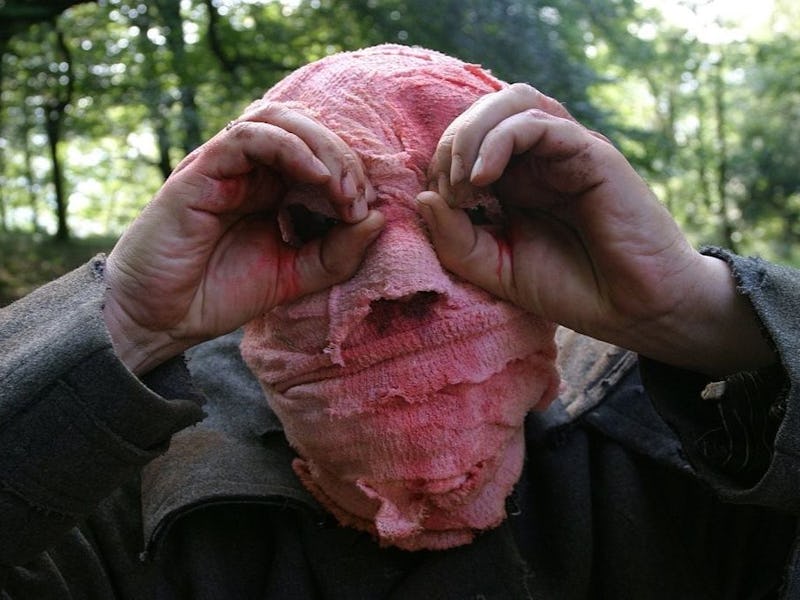You need to watch the most ingenious time-travel thriller on HBO Max ASAP
This little flick proves that big budgets are often just obstacles.

Low-budget time-travel movies often can be too ambitious for their own good, spending too much time on world-building and production design instead of telling a story. The 2007 debut feature from Nacho Vigalondo, however, is a notable exception.
While Vigalondo as a director is conceptually ambitious, he’s also stylistically conservative as seen in his sci-fi thriller, Timecrimes. The time-travel movie features just four characters and four locations, all of them intertwined in a deliciously circular plot that starts and ends with Héctor (Karra Elejalde), a middle-aged everyman and reluctant time traveler.
Having just moved into a country house with his wife Clara, Héctor is tempted into the nearby woods when he spies on a young woman taking her top off. A series of seemingly inconsequential and odd events occur – the woman, a strange phone call, a menacing man with a bandaged face, and a pair of scissors — which lead Héctor to stumble into a hidden facility and travel back in time to about an hour ago.
THE RULES OF TIME TRAVEL is an Inverse special issue exploring the evolution of science fiction's most imaginative sub-genre. From Marty McFly to Avengers: Endgame.
Vigalondo’s storytelling is at its best when it’s logically ambitious. Already sporting an Academy Award nomination for his short film 7:35 in the morning, he would go on to make the Spanish-set Extraterrestrial, an alien invasion movie that takes place almost entirely in a single Madrid apartment, before making his English-language debut with the jittery internet thriller Open Windows. The latter film came along at a time when genre films were taking direct inspiration from the manic multitasking of online life.
That ruthless efficiency is on full display in Timecrimes, where Vigalondo uses the film’s small budget to maximum effect, creating a film that’s aged better than a lot of sci-fi from the mid-2000s. We can recognize the different time travelers through clear visual markers, like the wounds they sport. The actual time machine itself is lowkey, just a big tub of nondescript liquid, like a serious take on Hot Tub Time Machine.
Timecrimes also features love triangle. Héctor’s voyeuristic curiosity draws him away from the safety of home and his wife into a dangerous time warp. His wandering eye is the catalyst of the story and its main theme, as his efforts to get back to where he began become increasingly desperate and cold-blooded.
Who says a time machine needs to be fancy?
The time travel itself is an accident, occurring only because a rogue technician (played by Vigalondo) wanted to play around with the machine on the weekend. He ends up getting embroiled with Héctor as he attempts to iron out the time paradox he unwittingly creates. Héctor, the cause and the solution of his own misfortunes, races against several past versions of himself to restore balance to his life. He needs to put things right — and herein lies the ingenuity of the film — by not changing anything.
While most time paradoxes are guided by the desperate need to fix or improve something, Timecrimes instead creates a circular narrative. It’s a puzzle you want to solve on the first viewing while being a satisfying example of circular reasoning. The protagonist’s ultimate decision to escape this time paradox acts as a startling reminder that the universe is inalterable.
Timecrimes is streaming on HBO Max.
This article was originally published on